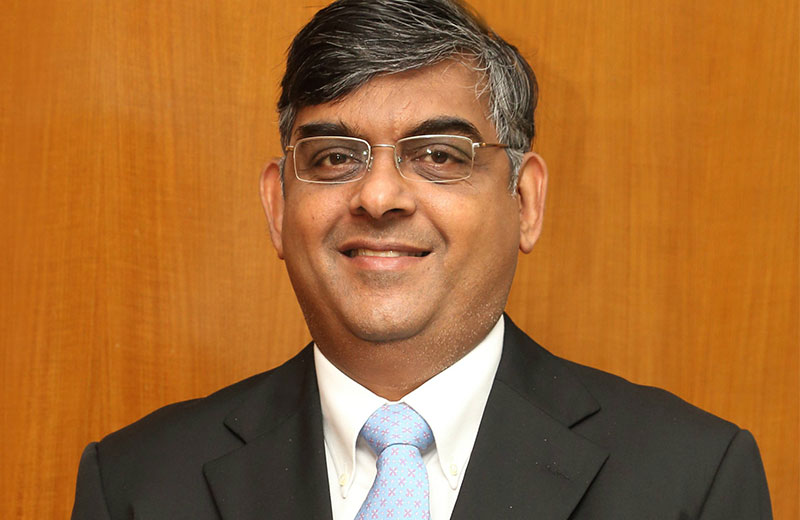[vc_row][vc_column][vc_column_text]
“Our strategy is to grow the business around Tata Group and then move gradually to non-Tata companies.”
Q What led to the formation of TMILL?
TM International Logistics Ltd (TMILL), a Tata Steel logistics company was incorporated in 2002, on the back of the growth in Tata Steel’s exports. In the early 1990’s Tata Steel used to export its flat products and HR coils either from Kolkata or Paradip port. In the mid 1990’s, due to non-availability of rakes at Paradip, exports of the company were diverted to Haldia Dock under Kolkata Port, which proved to be cost-effective to Tata steel. In the late ’90s, Tata was scouting for partnership for port operations, as Haldia Dock offered one berth on PPP format for a period of 30 years. The company finally formed a joint venture with Germany-based IQ Martrade, which has vast experience in port operations, with a 49 per cent stake. It won the tender in 2001 and founded TMILL in 2002, which is today Rs.850-crore logistics company.
Subsequently, in 2009, NYK Holding (Europe) joined the venture as a third JV partner, acquiring 26 per cent stake from Martrade. At present, Tata Steel holds 51 per cent stake in TMILL, while NYK Holding (Europe) and IQ Martrade have 26 per cent and 23 per cent shares respectively.
Q Do you offer services to Tata Group exclusively?
We offer a single window end-to-end logistical support for dry bulk, containerised and project cargo, with services ranging from port operations, shipping, freight forwarding and customs house agency to inland logistics, warehousing and tugging. Tata Steel is our major customer and constitutes 65 per cent of our total revenues. Our strategy is to grow the business around Tata and then move gradually to non-Tata companies. We operate at Kolkata, Haldia, Paradip and Vizag/Gangavaram ports. We handle all dry cargo except coal and other black cargo. The company has been handling cargo of 14 million tonnes per annum. We have warehouses in Haldia, Jamshedpur and Kalinganagar.
Q Tell us about your participation in the Railways’ SFTO scheme?
We are preparing to run our own freight trains to carry commodities through participation in Indian Railways’ Special Freight Train Operators (SFTO) scheme. TMILL had made several representations to the Indian Railways seeking certain modifications and revisions in the SFTO scheme, as a result of which the railways had tweaked the scheme to make it more attractive for operators. We are the first company in the steel product movement participating in the SFTO scheme. We plan to start operating private freight trains for moving steel coils for Tata Steel under SFTO scheme by September.
We will invest about Rs.150 crore to buy 7 to 8 rakes initially. The railways will operate the rakes for TMILL, In return for which the company will enjoy a freight concession of 12 per cent from the railways.
The Research Design and Standards Organisation (RSDO) of railways has designed a new wagon for higher loads. Texmaco is developing the prototype wagon as per the specifications of RSDO. Under the new design each rake carries 58 wagons, instead of 43 wagons in standard rakes, which gives the operator a major cost benefit.
Q Since majority of your business is from Tata, has there been any impact of the slump in global EXIM on your business?
Overall, the shipping industry has been going through a bad phase for some time now. The Baltic Dry Index has been at an all-time low, so the company has been achieving low volumes of late. But we are also trying to find some opportunity in this sluggish market. We are exploring the idea of buying ships as they are available at rock bottom prices. This will benefit us when the market turns favourable.
We had a nearly 17 per cent jump in performance after tax (PAT) at Rs.42.15 crore during 2014-15, as against Rs.35.98 crore for the previous year. Income has declined to 851.19 crore in 2014-15 from 1096.38 crore in 2013-14. We have taken a conscious decision of not chasing big turnovers but to focus on bottomline margins. Port operations and shipping are the major revenue earners of the company, while the rest comes from freight forwarding and tugging
[/vc_column_text][/vc_column][/vc_row]




